Restorative Dentistry
What Are My Options When Getting Dentures in Hillside Dental Care Tucson?
Dentures (commonly called false teeth) are custom-made prosthetic appliances designed to replace missing or extracted permanent teeth and surrounding soft tissues.
Why Do You Need Dentures?
If you’ve lost most of your permanent teeth due to gum disease, dental decay, or injury, dentures are an excellent solution. They replace missing teeth, improve dental aesthetics, and support better oral health. Dentures make eating and speaking easier, which is often overlooked when teeth are missing. Tooth loss can cause facial muscles to weaken and sag, making you look older. Dentures not only restore function but also fill out your facial profile and improve your smile. They’re custom-made to match the color and shape of your natural teeth, ensuring a seamless and natural look.
Types of Dentures
Dentures are categorized into several types, including complete, partial, and permanent options. Let’s explore them below.
Complete Dentures
Complete dentures, also known as full dentures, are designed for individuals who have lost all their permanent teeth. These dentures can replace teeth in the upper jaw (maxilla), lower jaw (mandible), or both. They are typically made of acrylic or other base materials that replicate the natural appearance of gums and support artificial teeth made of acrylic, porcelain, or metal.
Complete dentures are either removable or conventional. They are held in place by suction or an oral adhesive in the form of a paste or powder. Removable dentures can be worn and taken out easily by the patient. If worn immediately after tooth extraction, the shape of the gums and bone may change, requiring adjustments. Allowing the gums to heal for about three months before placing dentures is usually recommended.
Candidates for complete dentures include elderly individuals (65+) who have lost their teeth due to age or oral disease, as well as younger patients who may have experienced severe injury or decay.
Partial Dentures
Partial dentures are prosthetic devices that fill gaps left by one or more missing teeth in the upper or lower jaw. They are made from either a plastic base or a metal framework, using adjacent teeth as anchors to hold the appliance in place. Clasps or clips are often used to secure the dentures.
Types of Partial Dentures
1. Fixed Partial Dentures:
These are also called implant-supported bridges. They replace multiple missing teeth in a row and are supported by existing permanent teeth or implants on either side.
Advantages:
- Enhance your smile
- Stronger than removable dentures
- Provide better tooth alignment and bite
Disadvantages: - Increased risk of decay for supporting teeth
- Potential damage to surrounding gum tissue
- Higher cost
2. Removable Partial Dentures:
These dentures are built on a plastic base that mimics the appearance of gums and are attached to a metal framework for durability. They can be easily removed and replaced by the patient.
Removable partial dentures come in two varieties: - Cast Partial Dentures: Feature a gum-colored base with a metal framework.
- Acrylic Partial Dentures: Made of acrylic resin, these dentures function similarly to natural teeth.
Permanent Dentures
Permanent dentures are fixed in place with the help of dental implants and cannot be removed by the patient. They include fixed partial dentures and implant-retained options.
Advantages of Permanent Dentures:
- Long-lasting and durable
- Provide better chewing and biting surfaces
- Look and feel more natural
Disadvantages: - Higher cost, making them less accessible to some patients
All-on-4 Dentures
All-on-4 dentures are designed to replace multiple missing teeth in an arch by anchoring the appliance to four strategically placed implants. This procedure is often completed in a single day, with temporary dentures placed immediately after tooth extraction.
Advantages of All-on-4 Dentures:
- Fewer implants are needed compared to individual tooth implants
- Reduced healing time
All-on-6 Dentures
All-on-6 dentures replace a full arch of teeth using six implants for added stability. This option provides a firmer attachment and helps maintain jawbone integrity.
Advantages of All-on-6 Dentures:
- More stable than All-on-4 dentures
- Strengthens the jawbone
- Provides better bite and functionality
Caring for Your Dentures
Dentures should be brushed at least twice daily, just like natural teeth. Use a soft-bristle brush to clean them gently, and soak them overnight in a denture cleaning solution. Rinse and brush them thoroughly before wearing them each morning.
FAQs
Do dentures change your facial profile?
Yes, dentures can enhance your smile, prevent your lips from curving inward, and stop sagging facial muscles caused by missing teeth.
How do I clean my dentures?
Use a soft-bristle brush to clean them gently, then soak them in a denture-cleaning solution overnight. Brush them again before wearing them each morning.










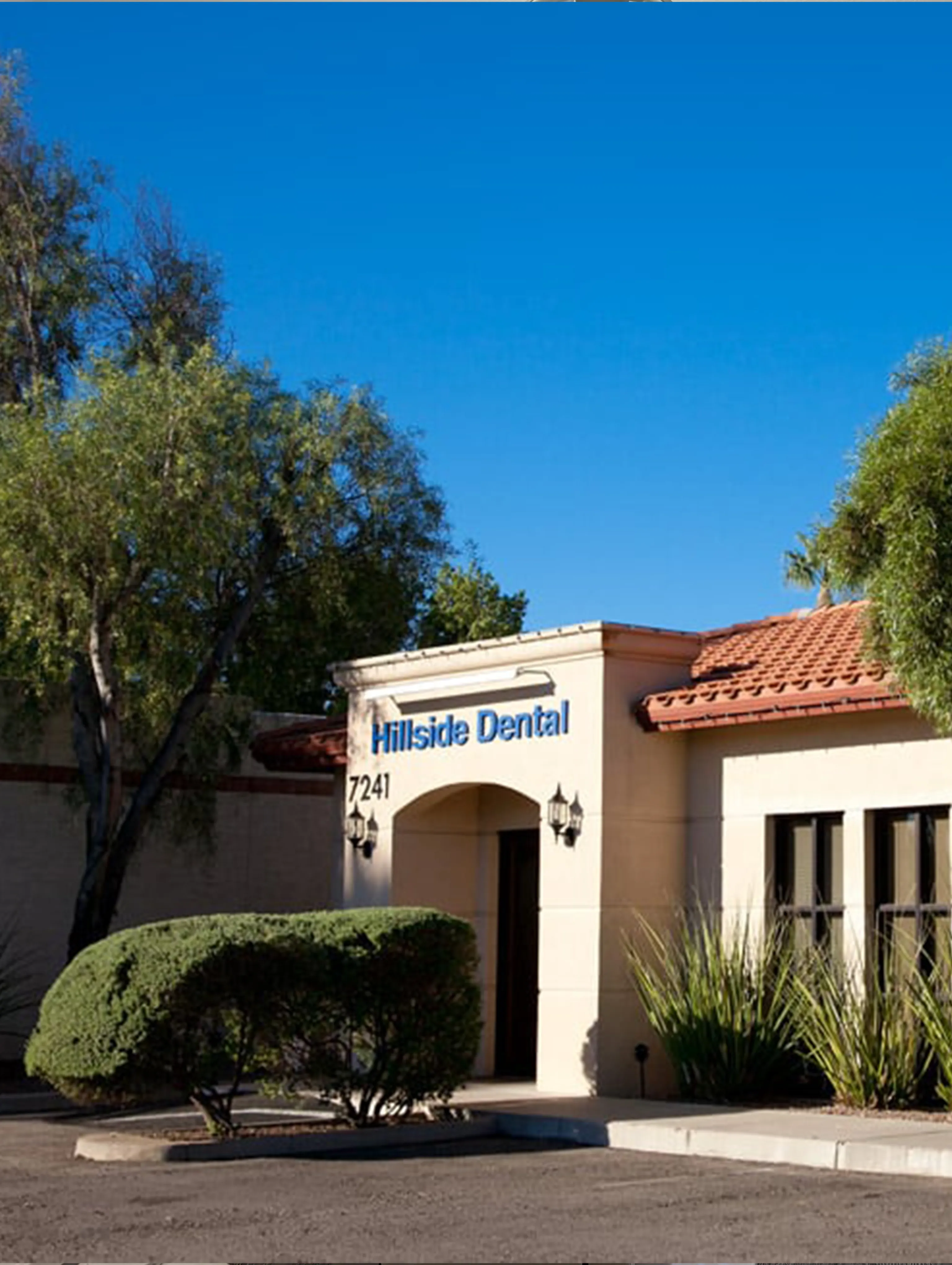
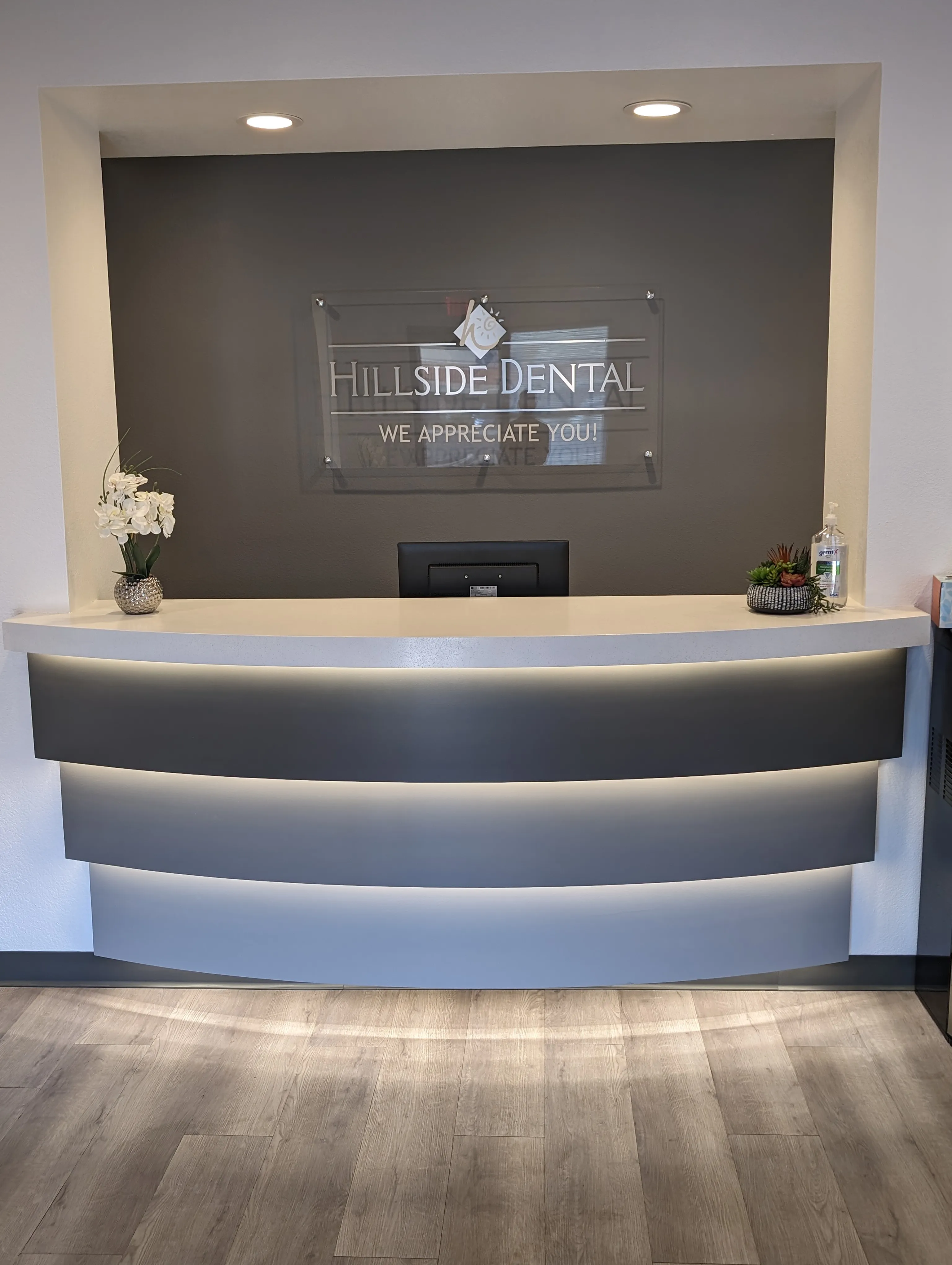


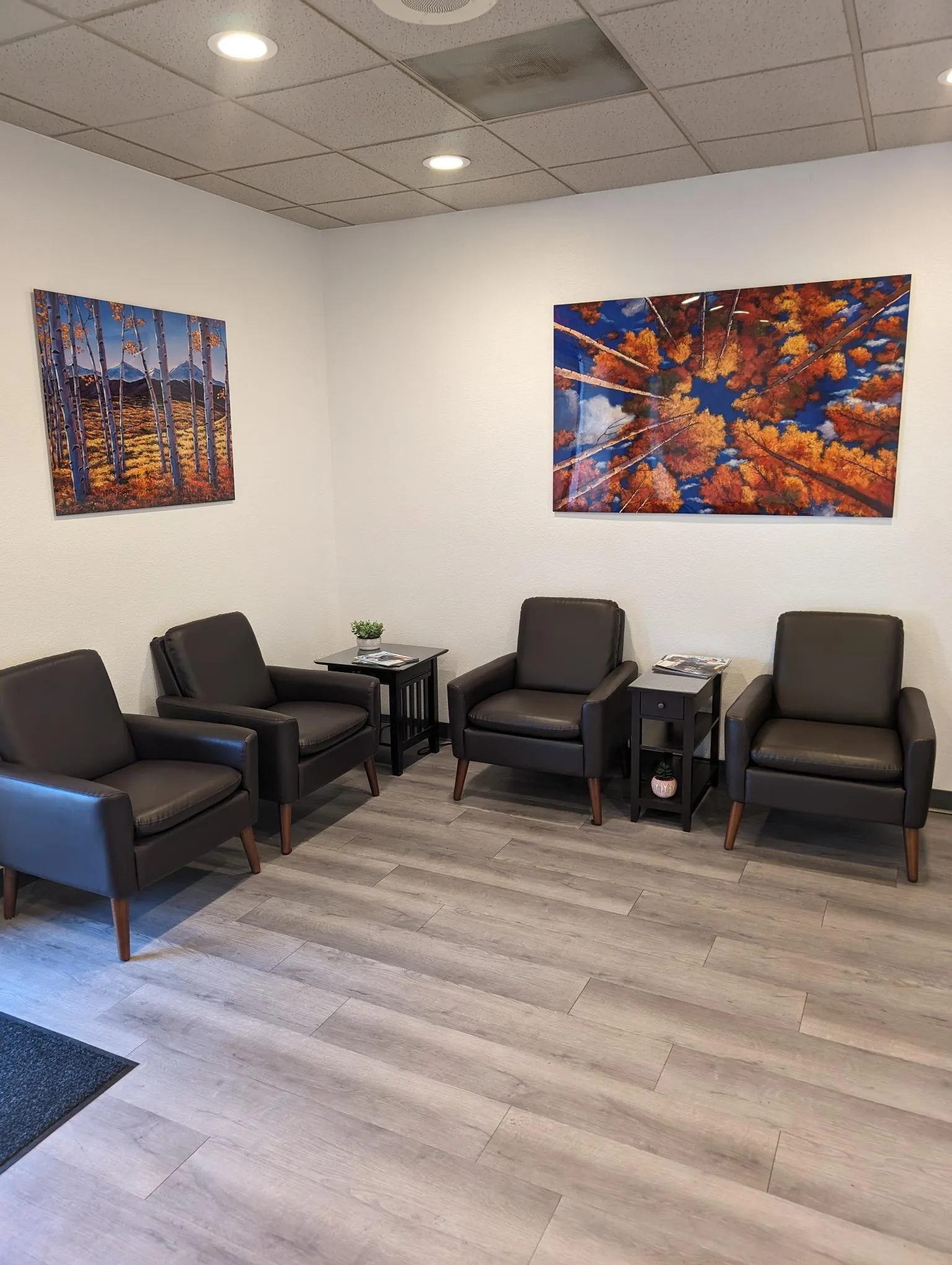
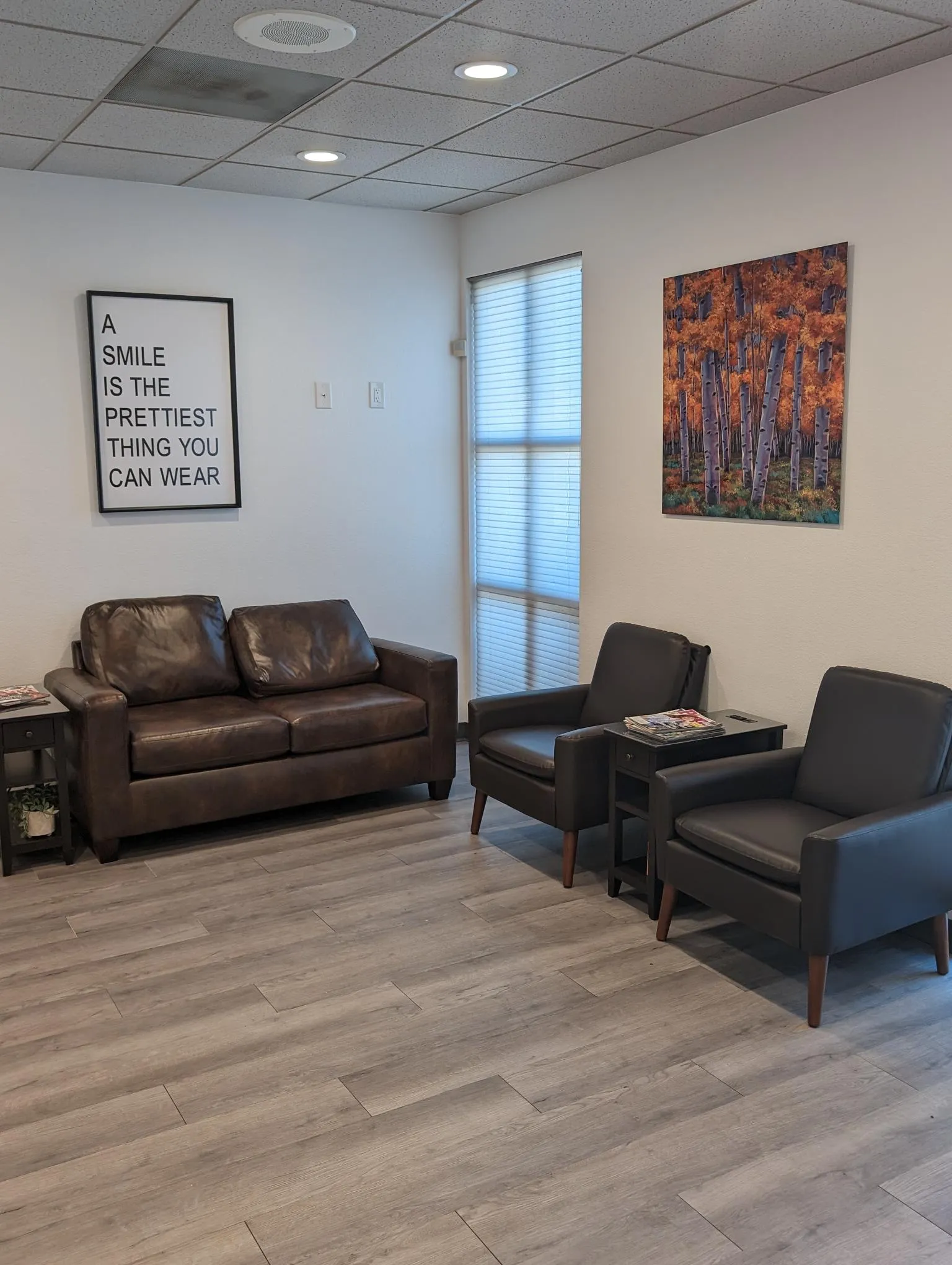















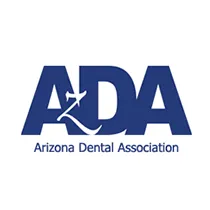
DENTAL CARE TEAM Tucson, AZ
OUR SOCIALS
Check us out and follow our accounts on the following social media platforms